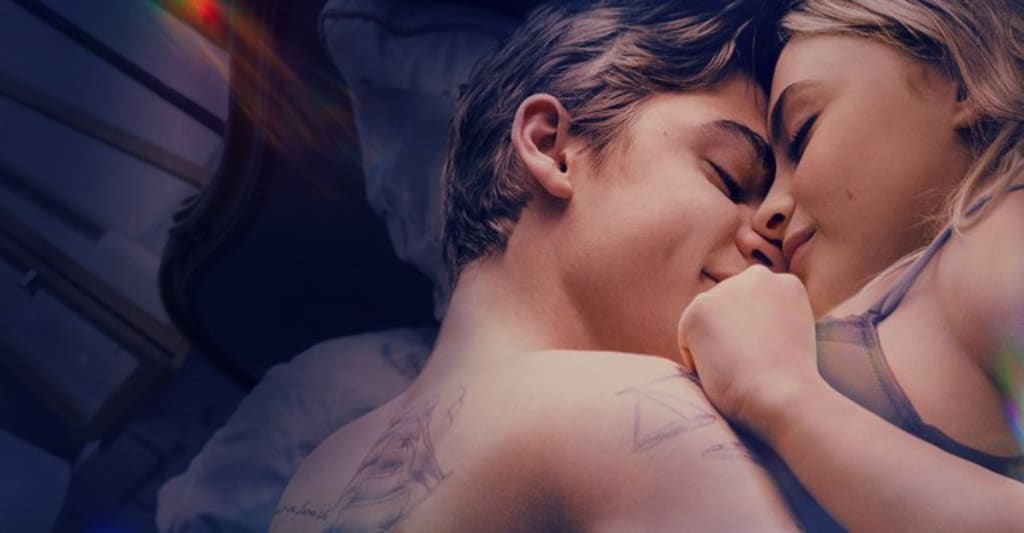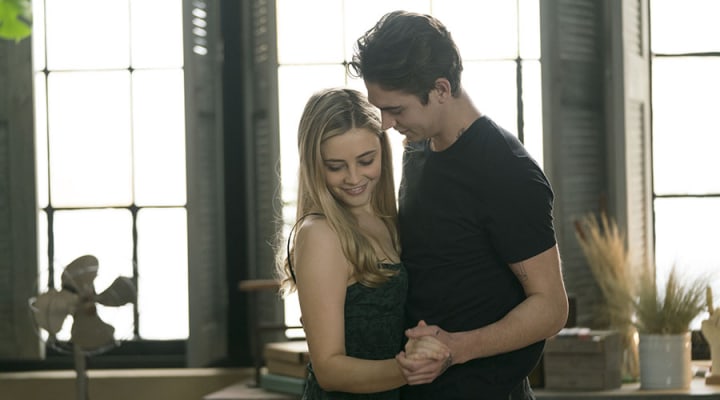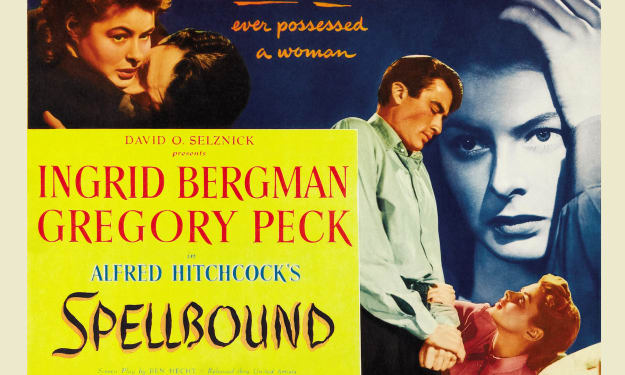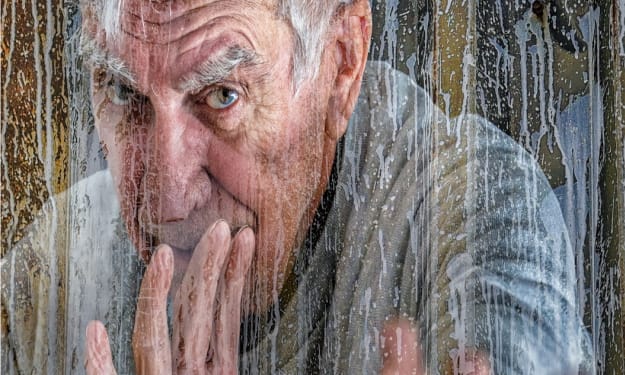
Trigger warnings: This review will address the themes portrayed in this film. These include domestic abuse, childhood trauma, sexual assault and alcohol/drug addiction.
With this being the adaptation of the fourth and final novel in Anna Todd’s After franchise, I had prepared myself to be done reviewing this series. Although I was contemplating reviewing the upcoming prequel and next-generation sequel in development, I thought this would be the end of Tessa and Hardin’s dysfunctional relationship being the main focal point.
Alas, the film gods — also known as the producers — had other ideas. Though not much has been revealed, it was stated on Instagram that principal photography had recently wrapped and that the official title will be After Everything. Langford and Fiennes Tiffin will reprise their roles as Tessa Young and Hardin Scott, respectively. It is intended to be the fifth film in the series.

Castille Landon and Sharon Soboil return as director and screenwriter, respectively. I will say Landon once again demonstrates her talent behind the camera, and she is still one of the strongest directors of this franchise. Meanwhile, Soboil’s screenplay gives surprising depth and nuance to the ensemble cast outside the central pairing. There was also an awareness of the couple’s unhealthy traits that was written much more naturally than expected. While in many ways, Soboil pens a reasonably decent script, there was a pacing issue, and it felt like the screenplay was rushed towards the end.
This was also one of Josephine Langford’s best performances as this film delves deeper into Tessa’s trauma and demons. For the past three films, Hardin’s family disputes have taken centre stage, and this was a refreshing perspective to explore Tessa’s character development more.

I feel I was lenient with the first two films, but this film and its prequel have really highlighted Hero Fiennes Tiffin‘s inconsistency with his acting. Whether the issues lay in the performance, direction or how the character was written — Hero Fiennes Tiffin lacks the range to portray the emotions required. Whenever a problematic scene arises, his character is reduced to screaming, punching walls or swearing at the top of his lungs. And if truth be told, his co-star and the rest of the cast outshine him on several occasions.
The fourth film begins precisely where After We Fell concluded, with Hardin going into self-destructive mode — of course. As a shocking truth about Hardin's family emerges, the two lovers discover they are not so different from each other. Tessa is no longer the sweet, simple girl she was when she met Hardin.

As Hardin struggles with the truth of his origins, Tessa literally spends an evening searching the streets of London to find him. Here we see Hardin break into his mother’s house and, in a drunken rage, threatens to burn the house to the ground. Despite Tessa making the valid point that both of them had difficult childhoods, Hardin refuses to listen to reason. With an unusual acting choice that looks similar to the Joker, he sets alight the couch his mother was attacked on.
As the house burns around them, Hardin’s biological father, Vance, arrives to talk his son off the ledge and helps him escape when the police arrive. You’d think this would cause Hardin to feel remorse, or there'd be consequences for committing arson? Nope! He dismissively points out that Vance is wealthy with good lawyers and has little thought for the repercussions of his actions on his loved ones.

Strangely enough, Tessa and Hardin have sex in their getaway car the morning after in the countryside. This was a very jarring scene and didn’t ring true to the situation. Tessa has just seen a disturbing side to her partner that should rightfully leave her unnerved. Similarly with Hardin, who is clearly in the midst of an emotional breakdown. Sex should be the last thing on either of their minds, but it is - I will credit Landon for the fewer sex scenes, and the ones that are in this film are much more tasteful than in After We Collided.
Quickly, their relationship descends into chaos from here. While Tessa attempts to do damage control with Vance and Kimberly — their issues need a film of their own — Tessa surprisingly realises that she has a saviour complex regarding her boyfriend. Still, she never puts that energy into herself.

Meanwhile, Hardin buys a one-way ticket for Tessa back to Washington and proceeds to get drunk and high with his old schoolmates. The constant contradiction of his words and actions is riddled with hypocrisy, for a character who protests that he is nothing like either of his fathers or Tessa’s is ridiculous. Tessa decides to dress up for the occasion of dragging her mess of a man out of a drug house — once again driving a car that’s not hers and having no issues driving in England, despite owning a car for a couple of months. Once there, we see Hardin flirting with another girl, and Tessa finally loses it.
Growing a backbone, Tessa gives the ultimatum that they’re done if she leaves within him. I was unconvinced — especially as there are at least two sequels and a prequel coming — but I can appreciate the character grown here. He doesn’t, and when she leaves, he screams like a banshee and punches the way. As you do.
In one of the most heartbreaking scenes of the series, Tessa returns home to find her father dead from an overdose. Langford and Chance Perdomo — whose portrayal of Landon is perfectly charming and has easy chemistry with his co-stars — give stellar performances in this emotional scene.

Mira Sorvino as Carol Young was superb casting as Tessa’s mother. Although the character was initially written as an antagonist in the books, Soboil’s script gives the character depth and complexity as Sorvino gives a brilliantly delivered performance. Langford’s scenes as her character is so overcome with grief that she stays with her estranged mother and unable to speak are well done.
Hardin hears the news and decides to leave his never-ending party to be there for Tessa, but every line of dialogue refers to him. When Tessa breaks down at the sight of him — after explicitly stating she didn’t want to see or talk to him — he finally hears what he’s needed to hear for four films.

Tessa: It’s not about you! I just want quiet…
Carol gives him some home truths in the following scene, especially when he shows his lack of emotional maturity. She points out that her dislike for him is rooted in the similarities between Hardin and Tessa’s father. We all knew this, but it’s stated aloud that their relationship is unhealthy.
As the film progresses, several things happen. Essentially, with everything that is happening with Tessa, Hardin finds a way to make it about him:
1. Tessa is considering moving to New York to finish her English Lit degree there? Hardin takes this as a personal insult and has a full-on temper tantrum.
2. Tessa needs a break, pointing out their unhealthy habits — they fight more than they get on, and they only reconcile over sex — and Hardin believes that Landon turned her against him by offering her a place to stay in New York.
3. And this is probably the worst. Tessa finds out in the previous film that she may have infidelity issues. It is confirmed here that Tessa will have a high chance of miscarriages and pregnancy complications, which means she’d struggle to carry to full term. Tessa takes this news badly, especially as she has always wanted to be a mother. When she tells Hardin this, he bursts into tears on the spot — remember the scene before he told her he didn’t want kids?
Tessa: Say something.
Hardin: I don’t know what to say. I just feel like something was taken from us.
Tessa: No… something was taken away from ME. You didn’t even want kids until two seconds ago!
Throughout this film, both characters have a back-and-forth despite not being in an actual relationship. While Hardin attends therapy, gets help for his drinking and channels his anger into his writing — yes, after four films, we finally learn what he’s been writing in that black notebook. And it’s not good.

Meanwhile, Tessa has moved to New York and as this is the third term she’s transferred universities in a year, she has been waitlisted to continue her studies. This was probably the most realistic aspect of the film, because any admissions department would see Tessa as an unreliable person to accept onto a course halfway through the semester.
So instead of using her publishing connections from her internship, she starts working as a waitress with Landon’s girlfriend. Her reasons for wanting to try something different felt a bit flimsy, especially as she got a job based on nepotism, proved she was actually good and that storyline throughout the past two films feels like a waste.

So five months passes, Tessa grows an awful fringe and is working graveyard shifts to make ends meet and Hardin is living his best life. This makes no sense. As much as I loathe these two with the same passion they have for Hemingway and Jane Austen, I was actually rooting for Tessa to succeed.
So Hardin literally crashes on her sofa for unknown reasons. After some awkward winter walks, trauma nightmares only she can cure (such an unhealthy amount of pressure to put on a significant other), sexual tension with tomato sauce and longing stares, they do it. Are they going to get back together? Most likely? Am I emotionally invested whatsoever after four movies? No!

But alas, Tessa is in a chipper mood the following day and stumbles across his notebook — very unsubtle in its title of After — and Tessa reads a full fictionalised version of their relationship where Hardin discloses such intimate and personal details; it’s shocking. He doesn’t even do anyone the courtesy of changing anyone’s names. He’s even written about Tessa’s life, including her father’s overdose, her infertility issues, and the fact he paid for her dad’s funeral — a fact she didn’t even know. Still, he’s okay sharing it in a book while obnoxiously comparing himself to Mr Darcy.
Unsurprisingly, they argue about this. As it turns out, his stay in New York ly because the book is in a bidding war — so it’s on the verge of being published. Tessa insists she doesn’t want such intimate details about their lives on the page for the world to read, but Hardin replies that their toxicity could help people.

Yeah, that isn’t very reassuring. From what I can tell, no changes are made to the book, and they break up again. Hardin reconciles with his mother — after burning down her house — and one of his fathers, soon becoming a bestselling author. At the same time, Tessa is left with no outlet for her own stories because someone else has already written them for her.
This ending made me angry. I was infuriated when I read “To be continued” on my television screen. How could these two come back from such a massive betrayal? And how has Tessa ended in such a difficult situation after years of putting Hardin first, only for him to thrive with no repercussions for his toxic behaviour and crimes — he’s a criminal at this point.

I'm assuming After Everything will be the conclusion to this adaptation, but I am not looking forward to it. Yet, I will probably write another review for it. I'm on this trainwreck, might as well get off at the last station.
My rating for After Ever Happy is ★½.






Comments
There are no comments for this story
Be the first to respond and start the conversation.